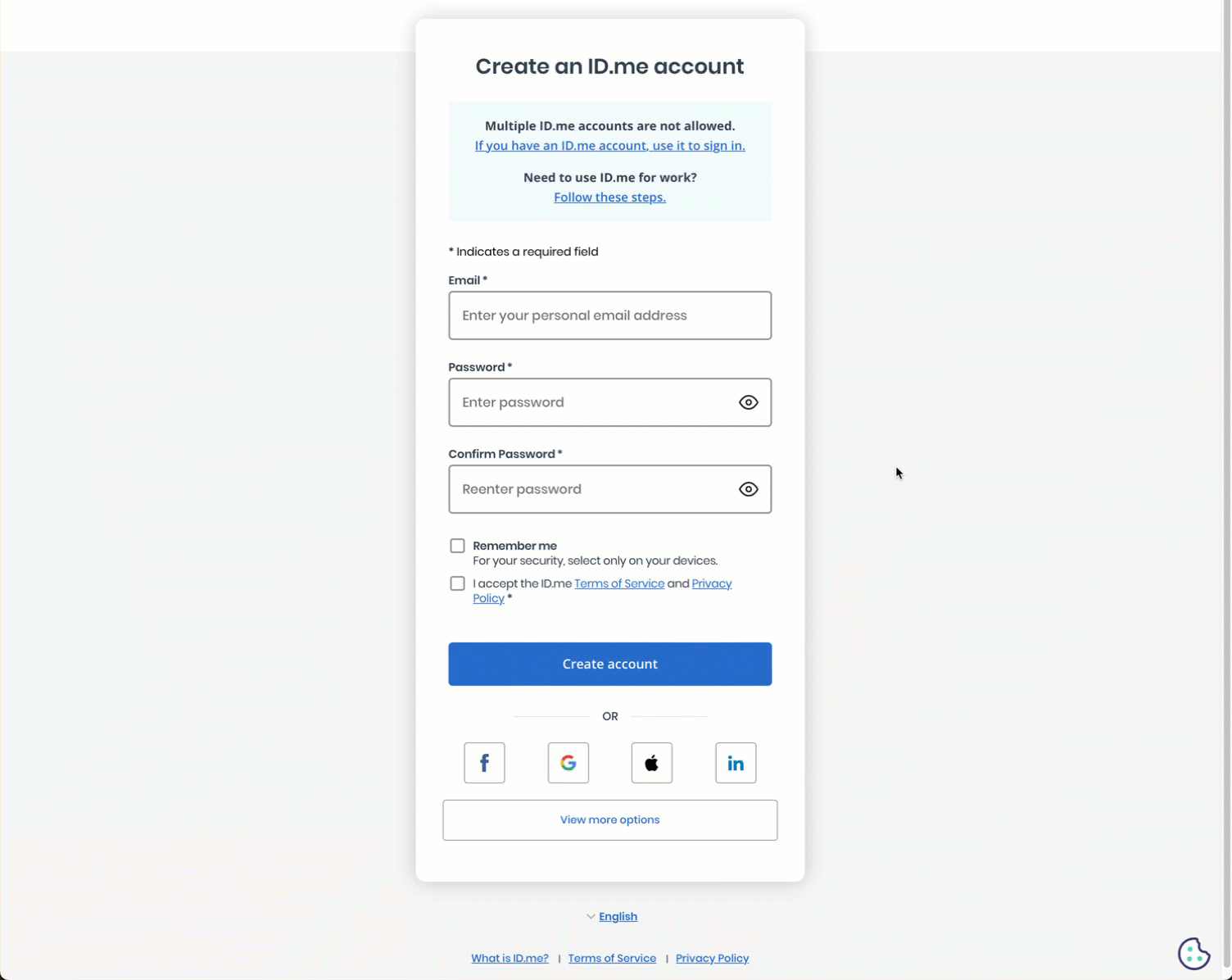Language localization
Language localization allows developers to adapt ID.me’s authentication and verification experience to different languages and cultural preferences using standard localization practices. This includes translating interface elements, copy, and user guidance to support a global user base.
Implementing localization ensures users can complete verification in their preferred language. Developers can set the appropriate language programmatically to create a seamless, personalized experience.
Available languages
Available languages
- English
- Spanish
- Armenian
- Bengali
- Chinese (Simplified, Mandarin)
- Chinese (Traditional, Mandarin)
- French Canadian
- Haitian Creole
- Hindi
- Italian
- Japanese
- Khmer
- Korean
- Polish
- Tagalog
- Thai
- Vietnamese
- Yiddish
Language availability may vary depending on the partner, service, or online tool being accessed through ID.me
Users can select their preferred language at the bottom of the authentication or verification screen.

Best practices
By passing a locale in your authorization endpoint or SAML AuthnRequest, you can automatically direct users to the appropriate language during ID.me authentication and verification. For example, if a user has selected Spanish or an es locale in your application, you can include that locale to prompt the experience in Spanish.
Configuring language accessibility
To enable language accessibility in your application, contact your solution consultant or email partnersupport@id.me